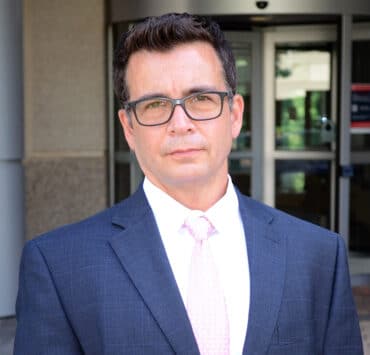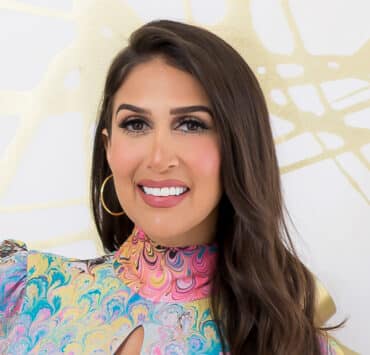|
Getting your Trinity Audio player ready...
|
In his early twenties, Carlos Lejnieks seemed to be on a surefire path to success. After graduating from an Ivy League University, he landed a job at Goldman Sachs and launched a career as a financial analyst. Along the way, Lejnieks started mentoring a student; first they met once a week, then more often. A new passion developed. It became so strong that soon, Lejnieks was ready to walk away from Wall Street to devote his life to mentoring and volunteerism. As Yogi Berra once said, “When you come to a fork in the road, take it.”
The quote has special significance for Lejnieks: Berra wrote the letter of recommendation that got him into Brown University. Lejnieks and Berra aren’t the most likely of matches. So how did a troubled but ambitious kid from Jersey meet and befriend an eighteen-time All Star and ten-time World Series champion? It all came down to hustle.
Lejnieks didn’t have what most people would consider a typical childhood. He was raised by a single mom who’d come to the United States from Ecuador and cleaned houses for a living. While Lejnieks and his brother lacked male role models, their mother became their fiercest advocate and worked tirelessly to keep them in the best schools. When Lejnieks needed money for summer camps or extracurricular programs, she petitioned local benefactors for help—and those benefactors became his first mentors.
By his sophomore year, Lejnieks was tired of watching his mom clean his friends’ homes. He dropped out of school in an effort to earn money for his family. Lejnieks rented space at a hotel, found out where Yogi Berra attended church, convinced the Yankee legend to attend an autograph show, and sold tickets to local fans.
Soon, Lejnieks had a thriving business and a community of mentors to help him. There was just one problem—those mentors wanted him back in school. Lejnieks reluctantly agreed, and even managed to graduate on time. When his hiatus from school raised red flags for admissions advisors, Berra stepped up to help Lejnieks get into Brown University.
People think mentoring is a thing where one person comes in from on high, but mentoring is a two-way relationship where both people have the opportunity to give and receive.”
Carlos Lejnieks
Four years later, another mentor referred Lejnieks to Goldman Sachs, putting him on the fast track to investment banking. That’s when one small decision changed the trajectory of his life forever. Lejnieks started volunteering to mentor local students at North Star Academy and realized they energized him in a way his professional work never did. “I started asking myself why I was really put on this planet,” he recalls. “Was it to earn money, or to make a lasting impact in the lives of others?”
The nagging question compelled Lejnieks to schedule a thirty-minute phone call with the school’s founder. Three hours later, he had a job offer and ultimately left the private sector to consult at North Star.
During that time, Lejnieks continued to mentor his original protégé, a young man named Aljameer. The experience changed his life. “People think mentoring is a thing where one person comes in from on high, but mentoring is a two-way relationship where both people have the opportunity to give and receive,” he says. Aljameer helped Lejnieks understand the impact he has on the world. Today, the two men remain friends and Lejnieks is godfather to Aljameer’s son.
In 2008, another childhood mentor recruited Lejnieks to step in as president and CEO of Big Brothers Big Sisters of Essex, Hudson & Union Counties, NJ. He inherited a declining organization but increased the number of youth it serves by ten times in less than four years. Lejnieks builds support in the community, recruits bilingual mentors, and does all he can to help “littles” find the mentors and connections that were so influential in his own adolescence.
That connection is even more important now, in the wake of the coronavirus pandemic. Lejnieks says his organization is still helping littles and others in the community navigate lingering challenges. While some families need childcare and others lack internet access, Big Brothers Big Sisters is most concerned about an increased disconnection in youth as a result of the pandemic. Lejnieks’s staff is preparing to serve those impacted by that disconnection.
Earlier this year, Lejnieks’s peers elected him president of Brown’s Alumni Association Board of Governors. He is the organization’s first Latino leader in the university’s 250-year history. “I’m both excited and humbled,” Lejnieks says of the position. “This means we can now include more voices and tell a complete story about the impact this university has.”
Lejnieks is just months into his first term, but as president-elect he signaled his intentions to elevate the concerns of minorities when he circulated a survey to the association’s historically underrepresented groups (HUGs). Twenty percent of the alumni association’s one hundred thousand members identify as HUGs, and while Lejnieks is still gathering data, he says early feedback has revealed one important thing.
“This is the first targeted survey asking historically underrepresented alums from Brown about their experience,” he says. Early data also shows that HUGs at Brown have a desire to connect around career development and mentoring opportunities, which Lejnieks plans to address early in his tenure. It’s been many years since Lejnieks came to Berra’s proverbial fork in the road.
Although he’s stacked up many accomplishments, he credits his mom with being his first advocate and his biggest cheerleader. Lejnieks recently donated seed money to start a Latino scholarship fund. When the nonprofit agency tried to name the scholarship after him, he proposed another idea. They named it the Ana Jaramillo Lejnieks Scholarship, in honor of his mother.

